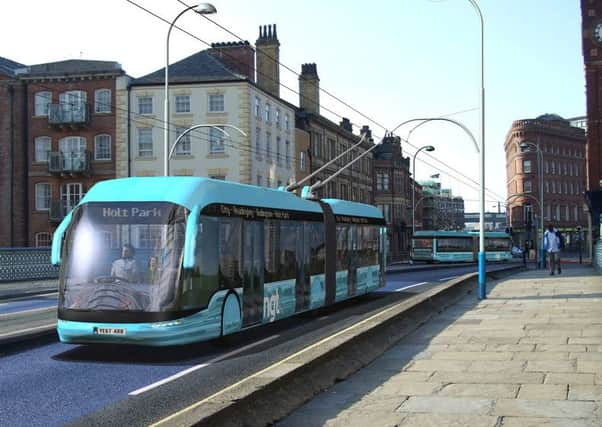Leeds trolleybus and Supertram promoters had 'unrealistically high ambitions'


Professor Peter Bonsall, Emeritus Professor of Transport Planning at the University of Leeds, was invited to offer his views to an inquiry panel which is investigating the city’s doomed duo of transport projects, which were developed over a period of 30 years in total before both were eventually dumped by the Government.
And in his 18 page report to the cross-party panel, which meets for its first session next week, Professor Bonsall says: “The history of the Supertram and NGT schemes is a sad one.
Advertisement
Hide AdAdvertisement
Hide Ad“It has involved considerable waste of public resources, decades of delay in addressing Leeds’s transport problems and consequent frustration for the city’s people and businesses.
“It is tempting to blame Whitehall and Westminster for having seemed to encourage the projects and ultimately to have refused to fund them, but I believe that much of the problem lies closer to home.”
He said “unrealistically high ambitions” were a key factor, adding: “The scheme for which funding was eventually sought was clearly larger than DfT were willing to accept and its business case was not sound.
“These proved to be fatal flaws when combined with unfortunate timing - had a smaller scheme been brought forward while tram schemes were popular with Government then Leeds might have received funding for a scheme which might later have been extended.”
Advertisement
Hide AdAdvertisement
Hide AdReferring to the NGT trolleybus, he said its eventual rejection following a public inquiry was due to the “fundamental weakness of its business case”.
He said opposition from local communities and businesses was “significant but would not have swayed the inspector had the Business Case been sound”.
He added: “This weakness was, in my opinion, due to an over-hasty decision to pursue a trolleybus scheme as a kind of ‘supertram-lite’ and to implement the main part of the scheme in the A660 corridor - where segregation from other traffic is difficult to achieve.”